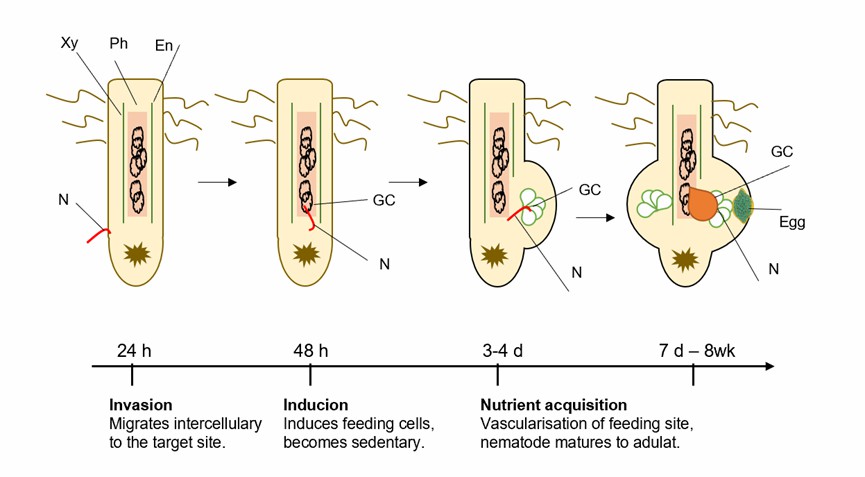Plant nematodes are devastating pests and cause considerable yield losses in many crop plants. A large part of this damage is inflicted by the sedentary endoparasite nematodes, which include two major groups commonly known as a cyst (Heterodera spp, Globodera spp) and root-knot nematodes (Meloidogyne spp). Plant nematodes induce highly specialized feeding sites inside the roots of their host that, once established, support the growth and development of the parasite throughout their longer-term interaction. They share a sedentary lifestyle and induce feeding cells intimately associated with plant vascular tissue.
Lifeasible makes full use of our specialized libraries, selection strategies, and maturation techniques to analyze feeding sites and host penetration of plant nematodes. With advanced technology and experienced staff, we provide comprehensive services for global clients to support their research.
 Fig.1 Schematic representation of the root-knot nematode infestation life-cycle.
Fig.1 Schematic representation of the root-knot nematode infestation life-cycle.
Lifeasible offers professional services to meet your research needs. With years of experience in plant sciences, our advanced platforms can help our clients solve various difficulties and conduct research. If you are interested in our services or have any questions, please feel free to contact us or make an online inquiry.
Lifeasible has established a one-stop service platform for plants. In addition to obtaining customized solutions for plant genetic engineering, customers can also conduct follow-up analysis and research on plants through our analysis platform. The analytical services we provide include but are not limited to the following:
Get Latest Lifeasible News and Updates Directly to Your Inbox
Adaptive Evolutionary Mechanism of Plants
February 28, 2025
Unraveling Cotton Development: Insights from Multi-Omics Studies
February 27, 2025